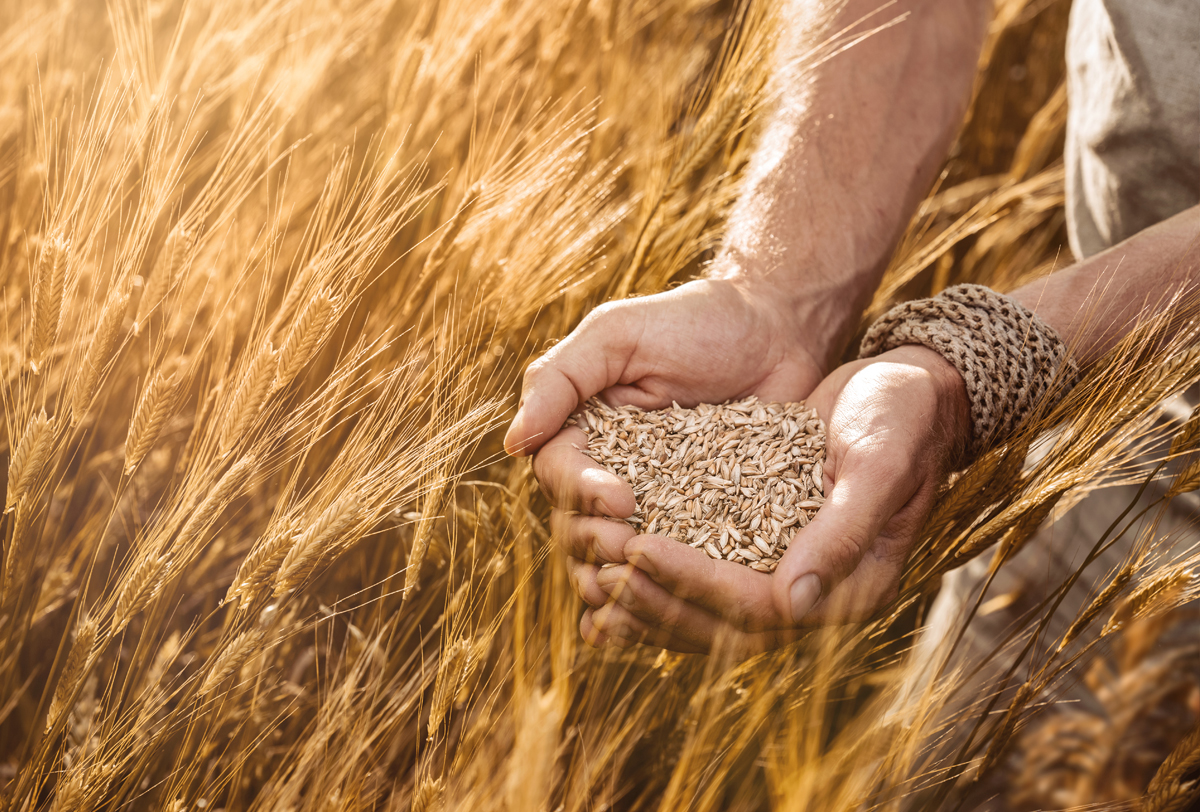
International Research Team Releases Complete Sequence of Einkorn Wheat Genome
August 16, 2023| |
An international research team led by the University of Maryland (UMD) scientists has sequenced the complete genome for einkorn wheat, the world's first domesticated crop. The team traced einkorn wheat's evolutionary history, a breakthrough that will help identify important genetic traits such as tolerance to diseases, drought, and heat, and reintroduce them to modern bread wheat.
Einkorn has been planted as early as 12,000 years ago, but as agriculture spread around the world, people replaced it with bread wheat. While bread wheat lost its natural resistance to drought, heat, and pests because of intensive cultivation and selection, einkorn maintained many of its resilient properties, with wild and domesticated varieties still in existence. A comparison of einkorn and bread wheat genomes allowed researchers to look for mismatches, narrowing the potential targets for genetic traits that differ between the ancient and modern grains. This study sequenced both the domestic and wild variety of einkorn, identifying about 5 billion base pairs that combine to make up individual genes and placing them in the correct order.
The study showed that einkorn can be used to map traits in bread wheat as they share the same gene for influencing the number of shoots a plant sends up from its base. UMD researchers have already begun identifying economically important genes, like those for grain size, and selectively breeding them into bread wheat. The reference genome also enabled scientists to trace the evolutionary history of einkorn wheat, which has been hybridized many times since its initial domestication and dispersal throughout Europe and Central Asia.
For more details, read the research news in Maryland Today.
| |
You might also like:
- Scientists Report First Genetic Transformation of Einkorn
- Scientists Uncover Breeding Gold Mine Discoveries for Wheat Genetic Improvement
- International Research Team Sequences Bread Wheat Genome; Finds Gene for Stripe Rust Resistance
Biotech Updates is a weekly newsletter of ISAAA, a not-for-profit organization. It is distributed for free to over 22,000 subscribers worldwide to inform them about the key developments in biosciences, especially in biotechnology. Your support will help us in our mission to feed the world with knowledge. You can help by donating as little as $10.
-
See more articles:
-
Plant
- International Research Team Releases Complete Sequence of Einkorn Wheat Genome
- First Field Test of Stacked HT Camelina Shows Positive Results
- Researchers Find a Gene That Could Help Cotton Combat Bacterial Blight
- 2023 PH Biotech Outreach Program Finishes Strong, Encourages Youth to Support Biotech
-
Animal
- Pinoy Biotek Seminar: Mudfish Spawning Technology
- CRISPR Gene Editing in a Rotifer
- Invitation: Animal Biotechnology Symposium and Stakeholder Consultation
-
Read the latest: - Biotech Updates (December 17, 2025)
- Gene Editing Supplement (December 17, 2025)
- Gene Drive Supplement (February 22, 2023)
-
Subscribe to BU: - Share
- Tweet

